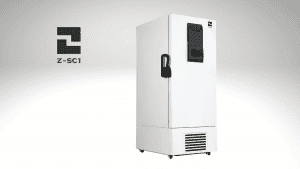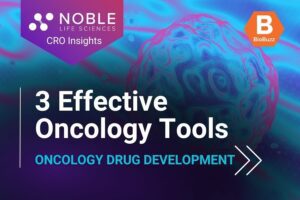
TEDCO’s Maryland Innovation Initiative Fund Continues to Deliver Substantial Impact for Maryland Biohealth Companies
August 20, 2019
The Maryland Technology Development Corporation’s (TEDCO) Maryland Innovation Initiative (MII), a program designed to propel research from partner universities towards commercialization, has had a strong, demonstrable impact on many important life science portfolio companies in the BioHealth Capital Region (BHCR).
AsclepiX Therapeutics, Inc., Neuraly/Theraly, NextStep Robotics, Sonavex and Coaptechare just a handful of the latest MII program success stories having achieved important tech transfer and commercialization milestones for their respective technologies with a jumpstart in funding and support from the MII program.
The MII program’s mission is to accelerate and augment the commercialization of promising technologies from “Bench to Market” through start-up creation. The program offers grants to de-risk technologies in the university and investments to the spinouts to jump start their entrepreneurial journeys.
“Along the way we also roll up our sleeves to provide additional support to enhance the valuation of these early startups, including CEO and life science specific roundtables, loaned executives and regulatory/reimbursement consulting help. Our success is evident in the fact that our investments of $33M over the past seven years has been leveraged by our startups to raise over $294M in follow-on funding to date,” stated Dr. Arti Santhanam, Executive Director of the MII.
The MII program is a partnership among the State of Maryland, Johns Hopkins University (JHU), Morgan State University, the University of Maryland College Park, the University of Maryland Baltimore and the University of Maryland Baltimore County. The program focuses on funding and supporting the technology transfer process for products with high-commercial upside whose research originated at one of the partner research universities.
The program offers two funding tiers totaling $265,000 over 18 months. The first tier is for tech validation and market assessment that lasts nine months and provides $115,000. The second tier provides $150,000 in funding for company formation and commercial launch, lasting nine months.
In 2018 alone, MII provided $4.3 M in funding to seven startups and in support of 26 technology validation and market assessments. Across its history, the MII program has invested approximately $33M in 83 startups and 219 technology assessment projects, resulting in $294M in follow on funding, seven exits and the creation of 90 full time and 62 part time jobs at an average annual salary of nearly $97,000.
2019 has seen the program continue to spark new growth in the (BHCR) by its continued, skillful identification and stalwart support of high-potential technologies and promising startups with Maryland roots.
Under the leadership of Dr. Santhanam, MII has also attracted several notable partnerships, including WSGR, MINTZ, Cooley JP Morgan, the later two partnering with MII to launch their first ever Capital Connections investor breakfast series connecting venture capital firms like NEA to these early stage startups. WSGR continues to sponsor the Entrepreneur Expo and is in talks to launch a focused life sciences roundtable to help the MII startups address and assist in their “growing pains”.
Two notable examples of the MII program’s impact include the recent success stories from AslepiX and Neuraly/Theraly.
With the support of the program, AsclepiX Therapeutics, Inc., located in Baltimore and led by CEO Wendy Perrow, MBA, has raised $8M in funding for its novel peptide-based therapies for retinal diseases and cancer.
“The MII program supported and funded us at AsclepiX Therapeutics, Inc., as a new company. Their early support led to us getting the proof of concept data, which helped us raise our seed round of funding of $8 million dollars. The MII team of Arti and Jennifer have helped and supported our team from the start of the company. We are truly grateful to the MII team for helping us work on medicine to help preserve vision in patients with retinal diseases and to help cancer patients,” stated Perrow.
Neuraly, Inc., a Germantown-based biotech company focused on neurodegenerative disease therapies, was also part of the MII program. Once a JHU spin-out, the company succeeded in raising $36M in Series A funding. Neuraly was then acquired by Korean-based D&D PharmaTech along with Theraly Fibrosis, Inc, another MII portfolio company. In August 2019, D&D PharmaTech announced a $137.1 million Series B round, which will help Neuraly advance its neurodegenerative disease clinical candidate into Phase II trials.
“The MII program provided critical translational research and seed funding to help us commercialize exciting technology from Johns Hopkins University,” said Viktor Roschke, Co-Founder of Neuraly and Theraly Fibrosis. “This early MII funding led us to a $6M SBIR award for Theraly and successful Series A raises for both companies. The MII program makes Maryland an attractive place to launch university spin-out companies.”
Other MII Program success stories include:
- NextStep Robotics, a personalized robotic therapy company located in Baltimore, that was recently awarded $5.4M in grant funding.
- Sonavex, another JHU spin-out company, received 510(k) clearance from the U.S. Food and Drug Administration (FDA) to market its EchoMark and EchoMark LP soft tissue markers last year. In March 2019, Sonavex announced it received 510(k) clearance from the FDA for its EchoSure device to deliver definitive blood flow data on demand.
- Medical device company Coaptech out of Baltimore received FDA 510K clearance for its PUMA-G System, which enables ultra sound-based placement of percutaneous gastrostomy feeding tubes.
- LifeSprout, another JHU startup, is a Baltimore-based regenerative medicine company that announced $6.5M in seed funding in late May 2019.
- Hunt Valley, Maryland’s Longeviti, a medical device firm with a focus on neuro-technology, announced it is raising approximately $12.6M, according to recent reports.
The MII fund was named by the Milken Institute Report as one of the programs helping Maryland retain 3rd place ranking on the State Technology and Science Index and most recently touted as a successful model for University technology commercialization program in a report by the Brookings Institute. With the MII program thriving, and a host of other life science technology support and funding opportunities available, TEDCO remains a driving force behind the commercialization of university research within Maryland and across an ever-expanding range of biohealth-related fields and industries.
“Seven years ago the Maryland life science ecosystem was still in its infancy. Since then the ecosystem has continued to expand and mature in leaps and bounds with more investment dollars pouring into our startups, the growth of our resident big Pharma partners like Emergent Biosciences, AZ and biotech infrastructure of CROs and CMOs like Paragon / Catalent. The ecosystem is more favorable for our MII startups now to thrive and grow as never before. It is truly an exciting time to be in Maryland for the program and our portfolio right now,” stated Dr. Santhanam.
- About the Author
- Latest Posts
Steve brings nearly twenty years of experience in marketing and content creation to the WorkForce Genetics team. He loves writing engaging content and working with partners, companies, and individuals to share their unique stories and showcase their work. Steve holds a BA in English from Providence College and an MA in American Literature from Montclair State University. He lives in Frederick, Maryland with his wife, two sons, and the family dog.





